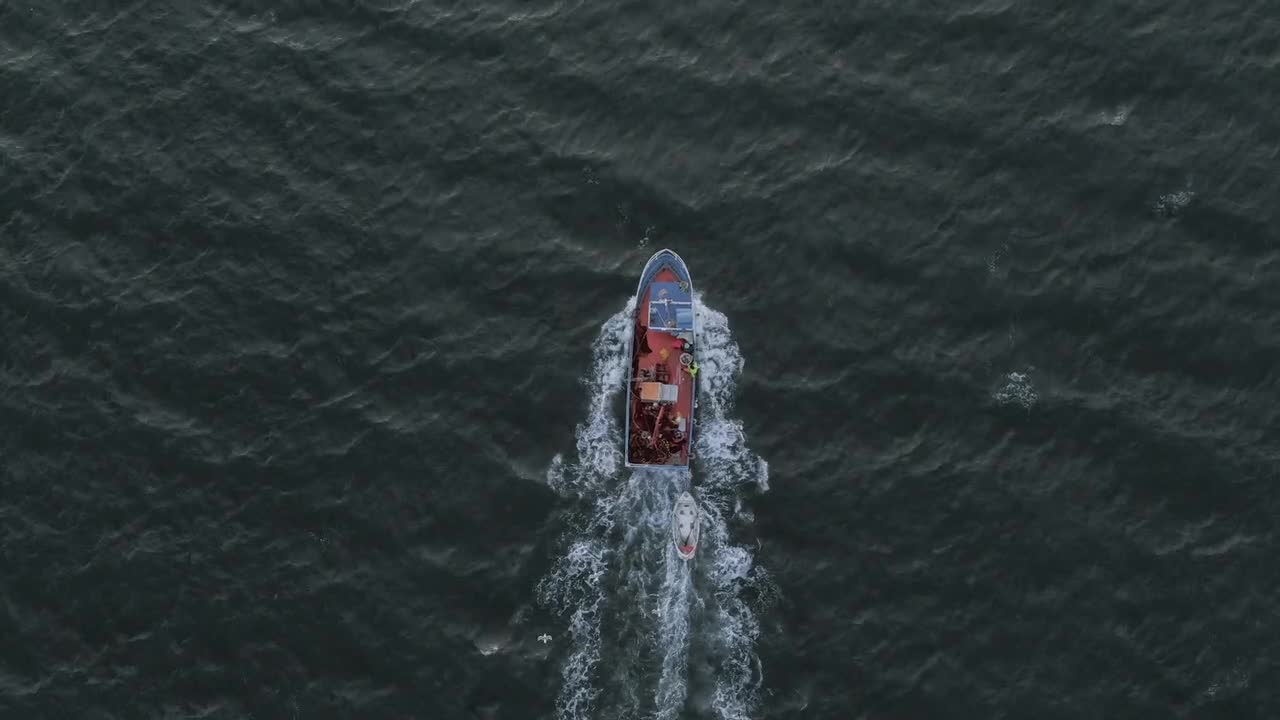Premium Only Content

The sea, connected as the world ocean or simply the ocean, is the body of salty water that covers approximately 71 percent of the Earth's surface. The word sea is also used to denote second-order sections of the sea, such as the Mediterranean Sea, as well as certain large, entirely landlocked, saltwater lakes, such as the Caspian Sea.
The sea moderates Earth's climate and has important roles in the water cycle, carbon cycle, and nitrogen cycle. Humans harnessing and studying the sea have been recorded since ancient times, and evidenced well into prehistory, while its modern scientific study is called oceanography. The most abundant solid dissolved in seawater is sodium chloride. The water also contains salts of magnesium, calcium, potassium, and mercury, amongst many other elements, some in minute concentrations. Salinity varies widely, being lower near the surface and the mouths of large rivers and higher in the depths of the ocean; however, the relative proportions of dissolved salts vary little across the oceans. Winds blowing over the surface of the sea produce waves, which break when they enter the shallow water. Winds also create surface currents through friction, setting up slow but stable circulations of water throughout the oceans. The directions of the circulation are governed by factors, including the shapes of the continents and Earth's rotation (the Coriolis effect). Deep-sea currents, known as the global conveyor belt, carry cold water from near the poles to every ocean. Tides, the generally twice-daily rise and fall of sea levels, are caused by Earth's rotation and the gravitational effects of the orbiting Moon and, to a lesser extent, of the Sun. Tides may have a very high range in bays or estuaries. Submarine earthquakes arising from tectonic plate movements under the oceans can lead to destructive tsunamis, as can volcanoes, huge landslides, or the impact of large meteorites.
A wide variety of organisms, including bacteria, protists, algae, plants, fungi, and animals, live in the sea, which offers a wide range of marine habitats and ecosystems, ranging vertically from the sunlit surface and shoreline to the great depths and pressures of the cold, dark abyssal zone, and in latitude from the cold waters under polar ice caps to the colourful diversity of coral reefs in tropical regions. Many of the major groups of organisms evolved in the sea and life may have started there.
The sea provides substantial supplies of food for humans, mainly fish, but also shellfish, mammals and seaweed, whether caught by fishermen or farmed underwater. Other human uses of the sea include trade, travel, mineral extraction, power generation, warfare, and leisure activities such as swimming, sailing, and scuba diving. Many of these activities create marine pollution. The sea has therefore been for humans an integral element throughout history and culture.
-
 DVR
DVR
Quite Frankly
8 hours ago"Fahrenheit 2025: Drone Hysteria, The Fog, Smart L.A." ft. Elana Freeland 1/15/25
33.9K7 -
 1:43:00
1:43:00
Redacted News
6 hours agoBREAKING! CAPITOL POLICE ON HIGH ALERT OVER ATTEMPTS AGAINST TRUMP, MEDIA SILENT | Redacted
141K250 -
 51:09
51:09
Candace Show Podcast
5 hours agoHILARIOUS! TikTok Ban Backfires | Candace Ep 133
107K154 -
 LIVE
LIVE
Dr Disrespect
10 hours ago🔴LIVE - DR DISRESPECT - WARZONE - NO MERCY
2,270 watching -
 2:27:54
2:27:54
Mally_Mouse
3 hours agoLet's Hang!! -- P.O.Box opening! & Stardew Valley pt. 20!
27.6K2 -
 1:17:31
1:17:31
The Amber May Show
5 hours ago $1.01 earnedDeep Dive On The California Fires | Gulf of 'Merica | Alan Sanders
20.6K3 -
 5:32
5:32
Rethinking the Dollar
9 hours agoHolding 0.001 Bitcoin Could Make You a Millionaire – Here’s Why You’re the Elite
26K9 -
 14:23
14:23
Degenerate Jay
10 hours ago $0.37 earnedThe Arkham Batman Is Alive - The Suicide Squad Game Is Dead
19.7K1 -
 1:06:50
1:06:50
PMG
23 hours ago $3.04 earned"Never trust a government that leads you into the apocalypse"
42.3K14 -
 1:05:15
1:05:15
In The Litter Box w/ Jewels & Catturd
1 day agoExternal Revenue Service | In the Litter Box w/ Jewels & Catturd – Ep. 720 – 1/15/2025
71K37